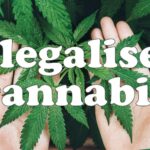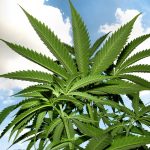Light Up This 420 as the Edifice of Global Cannabis Prohibition Continues to Crumble

Today, 20 April, is 420: a global day when cannabis legalisation advocates mobilise against the ongoing prohibition of the herb.
Although, these days, the number of jurisdictions around the planet where this action still holds relevance is dwindling.
Pot, weed, grass, buddha, ganja and marijuana are all terms applied to cannabis bought at the street level for recreational use.
In Australia, people usually smoke the dried heads and leaves of the plant rolled up in a joint or they pull cones of chopped cannabis through a water pipe known as a bong.
Compared to other drugs – including alcohol – cannabis is fairly innocuous. And this relatively harmless substance also holds significant medicinal benefits as its cannabinoids link to a set of receptors in the human body. So, when taken in relation to illness, it promotes health and wellbeing.
Over the last one hundred years, however, this wonder plant – which also has numerous environmentally sound industrial uses – has been made illegal the world over and demonised to the point that many fear it.
Reefer madness
The 1925 Geneva Convention was a transnational drug control treaty established to prohibit the recreational use of opium and coca. A last minute request from Egypt saw cannabis added to the list of banned substances.
And by the end of the 1930s, all Australian states had outlawed recreational cannabis in response.
Meanwhile, in the US, Federal Bureau of Narcotics commissioner Harry Anslinger was leading a campaign to eradicate cannabis, after his attempt to prohibit alcohol had failed. Anslinger drafted laws that became the 1937 Marijuana Tax Act, which criminalised cannabis farmers overnight.
Medicinal cannabis was amongst the most widely used medications in 1930s Australia. But by the end of the 1960s, cannabis medicines had all been phased out due to the stigmatisation of the plant and the prohibition on its recreational use.
Although, by the end of the following decade, the understanding that outlawing cannabis was a step in the wrong direction was already becoming apparent.
A 1977 Australian Senate Committee inquiry into its use recommended the removal of criminal sanctions for the personal possession and use of the herb.
Legalise it
Followers of the Grateful Dead organised a cannabis smoking meet at 4:20 pm on 20 April in 1991 in Marin County, California and from there, the 420 tradition caught on.
The Dead’s bass player, Phil Lesh, had popularised the term earlier, as it had been coined by his brother’s friends back in the 1970s.
Thirty years later and cannabis is now completely legal and available retail in California. New York just became the 17th US state to legalise the plant. The whole of Canada legalised it in 2018, as has the entire nation of Uruguay. While South Africa ruled home use above board in 2018.
In its sixth year in operation, the retail market in the US state of Colorado turned over $2.2 billion in sales last year, which generated $387.4 million in tax. The revenue raised in the Centennial state has traditionally been funnelled into health and education since retail sales commenced in January 2014.
ACT Labor MLA Michael Pettersson oversaw the passing of a 2019 bill, which made the personal possession and use of cannabis legal in Canberra as of 31 January last year. And on the one year anniversary of the reform, the initiative was deemed an overwhelming success.
However, the Australian Illicit Drug Data Report 2018-19 outlines that over that financial year there were 71,151 cannabis-related arrests nationwide. And of these, 91 percent were consumer arrests. This marks a 24 percent rise in cannabis arrests over the last decade.
So, while in other parts of the world, cannabis stores are now the norm, Australians continue to be penalised in the tens of thousands over using a plant that doesn’t promote violence like alcohol, but rather makes those who consume it placid and a little hungry.
Indeed, it’s high time Australian politicians move to legalise cannabis across this country and freed up law enforcement to focus on more worthwhile pursuits.







